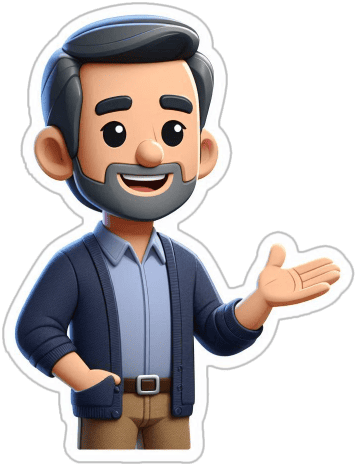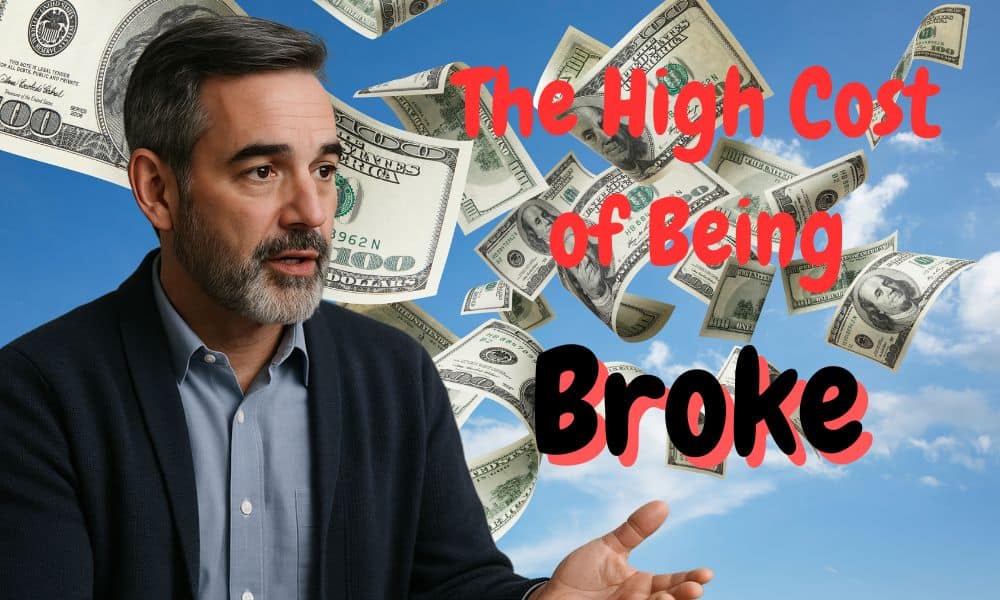It’s one of the cruelest jokes out there. The cost of being broke is higher than the cost of having money.
When you’re broke, you pay more, literally, for everything. You get slapped with fees, hit with high interest rates, and end up overpaying for basic things most people take for granted.
Insurance, housing, even a tank of gas on a credit card, can drain more from your wallet than it should.
But let’s get something straight from the start. This isn’t about being poor. Poverty means not earning enough to cover the basics. That’s a different, deeper struggle, and one that deserves its own space.
This is about being broke. Meaning, when you make enough money to live on, but never seem to have any. When payday comes and goes in a blur. Or, when the credit card balances keep climbing, and your savings account is stuck at zero. When you work hard but still feel like you’re always drowning.
Being broke is exhausting and expensive. And it’s time we talked about it.
Poor vs. Broke: Why the Difference Matters
Let’s call it out early.
Being poor means your income doesn’t cover essentials like housing, food, and utilities. No matter how frugal you are, it’s not enough.
Being broke, on the other hand, means your income should be enough, but your money disappears due to overspending, emergencies, or just a lack of a solid plan.
Want more?
Join us for updates and new information.
Because Googling “how to fix my finances” will only take you so far.
And if that’s where you are, you’re not alone. I’ve been there, done that, too.
Being broke doesn’t mean you’re bad with money. It means you’ve been doing your best in a system that never taught you how to win, and actually profits when you stay right where you are.
What It Means to Be Broke
Do any of these sound familiar?
- You live paycheck to paycheck.
- You rely on credit cards for basic expenses.
- You avoid checking your bank account.
- You juggle bills and pay some late every month.
- You have no savings, and maybe some scary debt.
Being broke isn’t just a bank account issue. It’s a lifestyle built around financial stress. And it means you’re constantly reacting instead of planning.
But most importantly, it’s not always your fault. And you’re not stuck here.
How We Get Broke
No one plans to be broke. It creeps in slowly.
Common ways it happens
- Lifestyle inflation: Every raise gets spent. You upgrade the car, the phone, and the dinners out.
- Lack of financial education: You were never taught how money really works, especially in a world that thrives on keeping it complicated.
- No savings safety net: One emergency derails everything.
- Trying to keep up: The pressure to match others’ lifestyles is real, and it’s expensive.
- Avoiding the money talk: It’s easier not to look than to face the mess.
The Excuses We Use to Stay Broke
We’ve all said these:
- “I’ll start budgeting when I make more money.”
- “I work hard. I deserve nice things.”
- “It’s too overwhelming to even start.”
- “Everyone has debt, it’s normal.”
Sound familiar? I’ve used and lived by each one of these excuses for a long time.
They’re comforting lies we tell ourselves when we’re stuck. But the truth is that you don’t have to be stuck.
The Real Cost of Being Broke
Let’s break down the real financial damage of living this way.
1. High Credit Card Interest
- Buying something you can’t afford in cash? You’ll often pay two to three times the sticker price through added interest or borrowing charges.
- Carrying balances? Credit cards charge an average of 22.8% APR, according to the Consumer Financial Protection Bureau, and often charge far more than that. And it adds up fast.
2. Bad Credit Means More Expensive Everything
- Higher interest rates on car loans and personal loans.
- Larger down payments or being denied altogether.
- Higher insurance premiums based on credit score.
- Loan origination fees that are much higher than for those with excellent credit or money in the bank.
- Security deposits for rent, utilities, or phones.
- Fewer housing options due to credit issues.
3. Penalties and Fees
- Late payment fees add insult to injury.
- Overdraft charges and NSF fees are like taxes on being broke.
- Lost opportunity, in that you can’t invest, save, or even plan ahead.
These costs aren’t just unfortunate, they’re intentional. The system profits when you stay broke.
Banks, lenders, and insurance companies make billions off the financially stressed.
That’s the cost of being broke, and it’s not just unfair. It’s unsustainable.
Budgeting and Goal Setting: The Path to Freedom
You’ve probably heard it before: You need a budget. And maybe your first thought was, I don’t even have enough money to budget.
As long as you’re here, why not start budgeting the right way? Grab the workbook that keeps your wallet fat and your stress low.
$12.95
But budgeting isn’t about restrictions. It’s about taking control.
Budgeting means
- You know exactly where your money’s going.
- You stop falling for “small” charges that add up.
- You start feeling empowered, not ashamed.
Start with something simple
- Track your spending.
- Build a small emergency fund ($500 is a great start).
- Focus on paying off one credit card or small debt.
- Set just one, small financial goal and go after it.
Budgeting isn’t about being perfect. It’s about being intentional. And most often, it means starting small.
You Don’t Have to Stay Broke
You’re not broken. You’re just broke. And that’s something you can change.
The banks want you paying minimums forever. The system doesn’t want you debt-free. But you don’t have to play that game anymore.
Budgeting is your way out. Saving is your rebellion. Paying off debt is your power move. Even better, budgeting is flexible, so you can use it, tailored just for you, to meet your specific needs.
It is what you say it is.
You don’t have to do it all at once. Just start.
- Use the free budgeting tool on our Tools and Budgets page to create your first plan.
- Check our other free calculator tools, too.
- Learn more about Matt’s Dad Says…
You’ve paid enough for being broke. Now it’s time to take it back.






Leave a Reply